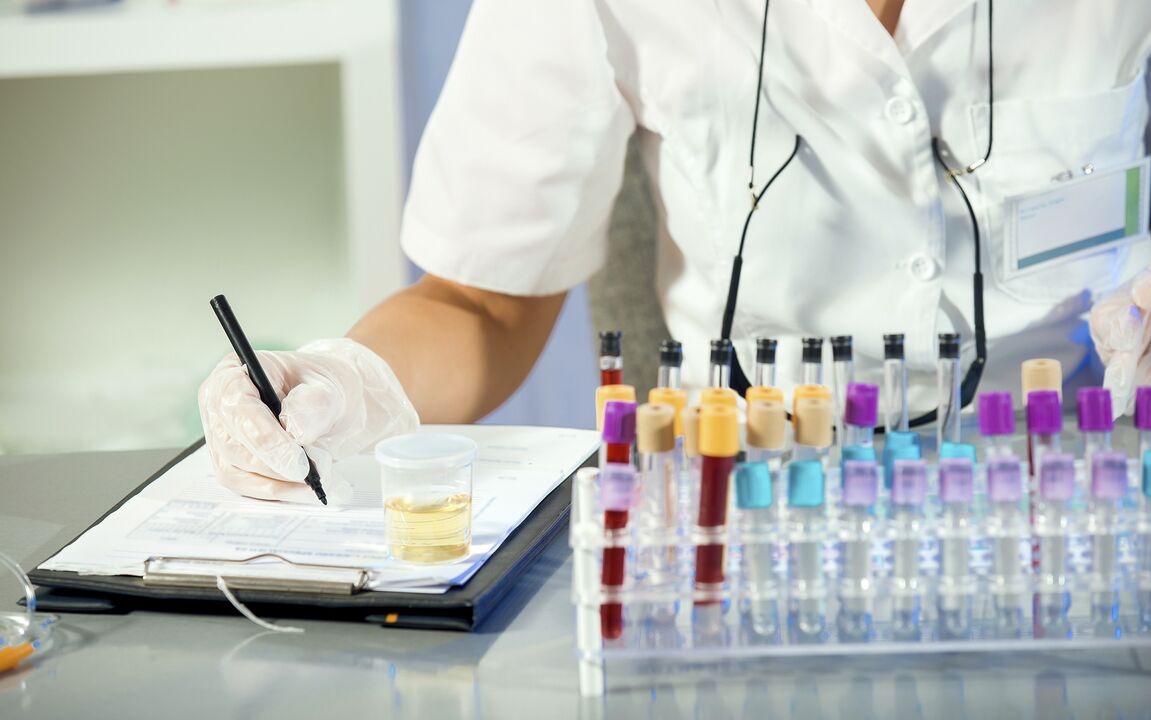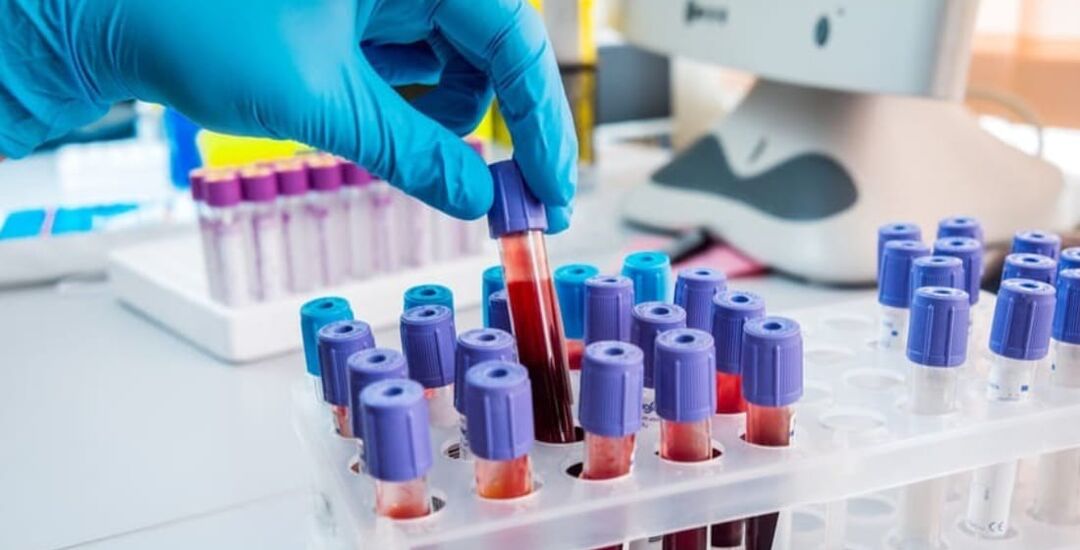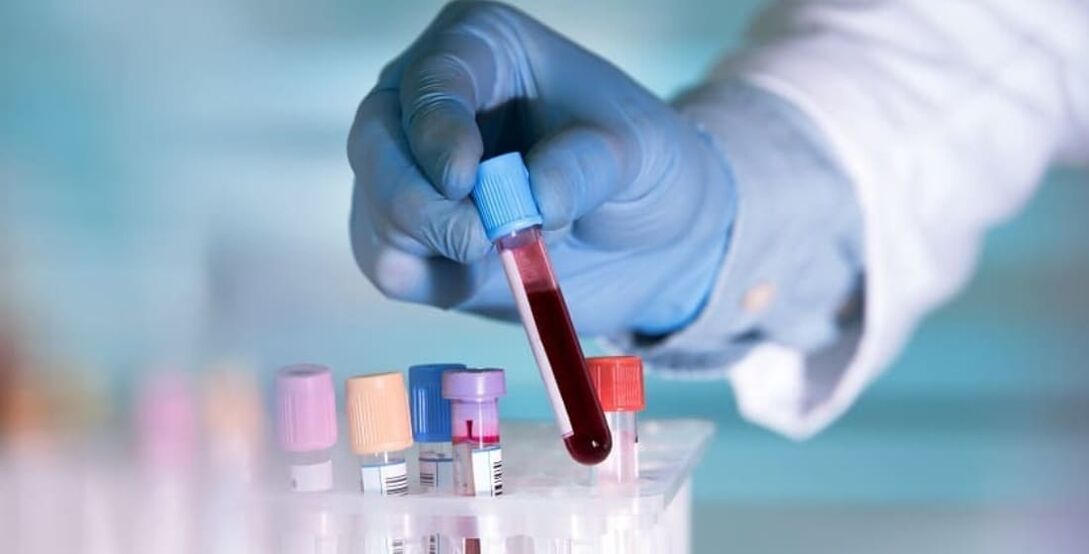
The main step in the prompt treatment of any disease is diagnosis. The laboratory tests carried out on time allow us to give the most accurate information on the course of the disease. To achieve this, preparatory measures are needed. Most of our compatriots have a natural interest: How does ethanol affect the accuracy of analyzes?
Does alcohol affect the blood test?
Alcohol can changeblood composition:
- reduce the number of red blood cells and hemoglobin indicators,
- reduce the urea content,
- low lactate levels,
- reduce glucose levels,
- increase the percentage of triacylglycerols.
Alcohol is able to make the blood more viscous, increase its thrombosis rates. An increase in the number of adherent cells and red blood cells can be interpreted as megaloblastic anemia.
The greatest deviations in the event that you take alcohol before taking the tests are shown by the biochemistry of the blood. A decrease in uric acid is a consequence of a violation of the circulatory mechanism. An increase in the concentration of triacylglycerols - indicates the presence of ischemia or hepatitis.
In order for the tests after alcohol not to mislead doctors, when receiving a referral, it is necessary to inform the specialist about this condition.
In addition to distorting test results, alcohol can distort the functioning of devices in the laboratory. The effect of reagents on ethanol distorts the blood sugar level, as a result it is impossible to start the treatment of diabetes mellitus in time.
How alcohol affects tests
Ethanol is not the main condition that must be eliminated before going to the laboratory. Not just smoking or eating before the test, drinking alcohol can reduce the accuracy of the instruments.
Distortion of the analysis under the influence of ethanol can render the diagnosis ineffective. The more alcohol is consumed, the less objective the result will be.
General analysis

Exposure to alcohol can skew the resultslike this:
- destroy red blood cells,
- increase cholesterol levels sometimes by 80%,
- reduce hemoglobin levels, as the concentration of red blood cells also decreases.
If you take alcohol immediately before this test, the increased likelihood that the number of red blood cells (red blood cells that carry oxygen to all organs or tissues and the return transport of carbon dioxide) will be reduced.
Alcohol dissolves the membranes of red blood cells, preventing their natural random movement and reducing repulsion. The red blood cells begin to stick together. Their concentration in plasma decreases, which leads to a decrease in hemoglobin parameters. The aggregation of red blood cells leads to the appearance of blood clots and a decrease in blood microcirculation in the vessel.
The blood becomes thicker after the alcohol enters. Its ability to penetrate through the lumen of the capillaries decreases due to the clots that have appeared. This situation is dangerous for the health and life of people and prevents a full study of the composition of the blood.
In the liver, under the influence of alcohol, the production of lipids decreases. This reduces the characteristics of the plasma. These indicators play an important role in the period in which the patient is preparing to operate. Careful analysis is essential to ensure that the patient's health is monitored when they have had a severe infectious disease or while healing large wound surfaces.
The blood tests that are takenin less than 12 hoursafter taking alcohol, he can accurately show only general intoxication. The decrease in hemoglobin shows only megaloblastic anemia. But the doctor may refuse to make a diagnosis, referring to the patient's recent alcohol intake.
Biochemical indicators
Alcohol has the strongest effect on biochemical blood test. This analysis is the most complete. With the help of it, you can find out which substances are urgently needed by a person and which there are a lot of them and an urgent need to lower their concentration.
The result of biochemical research under the influence of alcohol changeslike this:
- the amount of urea in the blood decreases,
- data on the absorption of oxygen by the cells of the body are violated,
- quantitative indicators of glucose suffer.
The latter factor can pose a threat to the patient's life, as the diagnosis of diabetes mellitus is late.
The increase in the background of urea is also caused by alcohol intake. Distorted indicators of its content can hide severe circulatory disease, leading to hemorrhagic shock or acute heart failure. Since urea is involved in nitrogen excretion, its increased concentration is a sign of gout and polyarthritis. Accuracy of diagnosis can only be satisfactory with abstinence from alcohol before taking tests.

Drinking alcohol before the procedure can cause an increase in the triacylglycerol content in the blood. This neutral fatty substance, being in the bloodstream, indicates pathological processes,like:
- atherosclerosis,
- ischemia,
- cerebral artery thrombosis,
- Viral hepatitis.
Most doctors, as a matter of principle, exclude alcohol-containing medicines from taking before drawing blood from a patient. But alcohol is believed to help detect the presence of an infectious disease. But even the smallest dose of ethanol distorts the test results and makes it unsuitable for the doctor.
According to the stories of nurses and doctors, most people do not confess that they consumed alcohol before the test. Another side factor that arises when people who drank alcohol the day before are tested isI'm:
- fainting,
- severe headaches
- nausea.
The volume of blood drawn from the body from a vein is negligible. His loss is not a problem for a person. But if the patient comes for exams after drinking alcohol, the metabolism is usually impaired and blood circulation in the brain is reduced.
Taking in a vein can lead to oxygen starvation in the brain. This can lead to severe dizziness or fainting. After that, the patient may have a headache for a long time.
Alcohol poisoning can disrupt the digestive tract. The patient may vomit in the doctor's office or laboratory from the smell of alcohol or chlorine used for disinfection.
Glucose test
The study of the amount of glucose in the blood is necessary for people suffering from endocrine disorders. Blood is drawn from a finger. If the patient drank alcohol-containing liquids before taking blood, his blood becomes thicker, the pressure decreases. This makes blood drawing difficult and increases the risk of thrombosis.
Alcohol exposure is a negative factor for liver cells. It also has a negative effect on the laboratory apparatus and reagents. This makes the result inaccurate. The sugar level can be increased or decreased in relation to the state of affairs.
One gram of alcohol can change the number of kcal by 7 more, which is explained by the rapid penetration of ethanol into body tissues and fluids. Sugar indicators in this case increased.
Alcohol becomes the cause of low sugar values.About 2. 5 hoursstable blood glucose data is provided by the carbohydrates in the food. For the rest of the period, glucose is produced by the liver, which attracts the body's energy resource. Alcohol disrupts normal metabolic processes and causes hypoglycemia.
Blood sugar levels return to normalafter 1 or 2 days. . . If the patient is at risk for diabetes mellitus, it is important that he give the doctor a normal picture. In another case, the doctor will attribute high sugar levels to alcohol consumption. The period in which health can be improved will be lost.
Can I drink alcohol before the test?
In no case. Alcohol changes the test result. The most important thing is to completely abandon the consumption of liquids containing alcohol before a major operation.
Sometimes it is possible to have a small amount of alcohol before testing. The doctor will discuss this condition with the patient at the appointment in an individual conversation.
But in any case, the recipient must stop drinking alcoholic beverages forty-eight hours before the analysis. During this period, the human body has the opportunity to recover.
When tested for HIV, hepatitis B or C, and syphilis, the length of time the patient must be completely sober increases to 72 hours. Otherwise, the analysis result will be distorted.
If the laboratory assistant or doctor receives information that the patient drank before the tests, the blood donation is postponed. If the information is displayed later, the analysis is repeated when the acetaldehyde is no longer present in the bloodstream.
The only possibility in which alcohol will not affect the result is considered to be the analysis of alcohol intoxication, which is carried out between drivers of vehicles and certain categories of workers. This test is performed without preparation or notice in order to obtain an objective picture. In any other case, you can only drink water before taking the test.

























